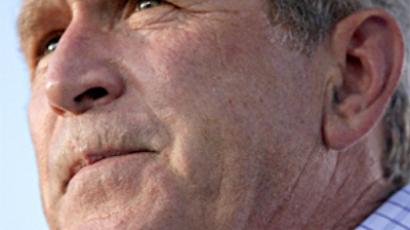Britain looks into in-flight surveillance cameras
Human rights campaigners are alarmed in Britain over EU plans to install surveillance cameras on airplanes.
The project is aimed at preventing terrorism, but some believe more cameras will only further undermine democracy in the country that is already the most watched in the world.
Those people who plan to go off for a week in the sun could have their conversations and movements monitored while they’re flying due to a European Union project going ahead. The plan has alarmed civil liberties campaigners, who fear further growth in the surveillance state.
As usual, opinions are divided. Some air passengers see additional surveillance as interfering with their privacy, a sort of last line pushed in by regulations. Others say they have nothing to hide so it would not worry them personally.
The EU project is aimed at tackling terrorism, by analyzing the way passengers behave in a bid to isolate potential bombers or hijackers when they’re already on board. At the moment, surveillance on planes is mainly limited to a CCTV camera near the cockpit.
Today Britons are the most watched people in the world, with more CCTV cameras per capita than any other nation. There are cameras on highways, in train stations and at airports. It is at the University of Reading that scientists are developing the new in-flight surveillance system, which won’t just consist of cameras, but will also have microphones, and a special system for monitoring “unusual behavior.”
Behavior that the system will eventually be able to pick up includes sweating, moving around the cabin in an erratic way, and repeated visits to the toilet. Dr. James Ferryman insists it will distinguish between potential terrorists and nervous flyers.
“One way we could do that is to look very carefully at the types of cues we detect, so someone may be acting nervously or anxiously, or sweating – in isolation, that doesn’t say anything, it could be just a nervous flyer – or it could be a terrorist,” said Ferryman, of Systems Engineering at the University of Reading. “But we’ll only know that when we combine this information with other sources of information that comes to place. I prefer to think of it not as Big Brother watching you, but Big Brother looking after you.”
Not everyone sees it that way. Campaigners say privacy is one of the litmus tests for a democracy, and mass surveillance erodes it enormously.
“It treats everyone as a suspect, and that completely contradicts one of the main tenets of democratic law, which is that everyone is innocent until proven guilty,” proclaimed the spokesperson for NO CCTV, Alex Tabor. “Continuing surveillance, mass surveillance – be it video, communications, whatever the many ways that seem to be creeping forward – completely goes against that.”
Apart from the civil rights issues, many question the efficacy of an onboard system. If a terrorist isn’t caught at the airport, they say, by the time a plane is 30,000 feet up, isn’t it already too late?













